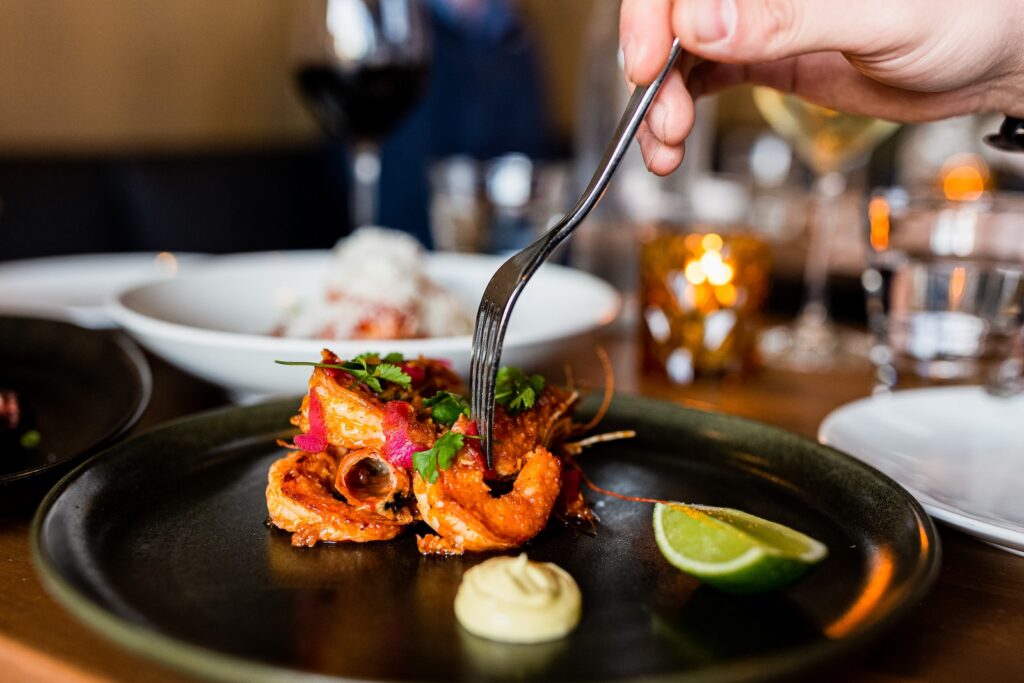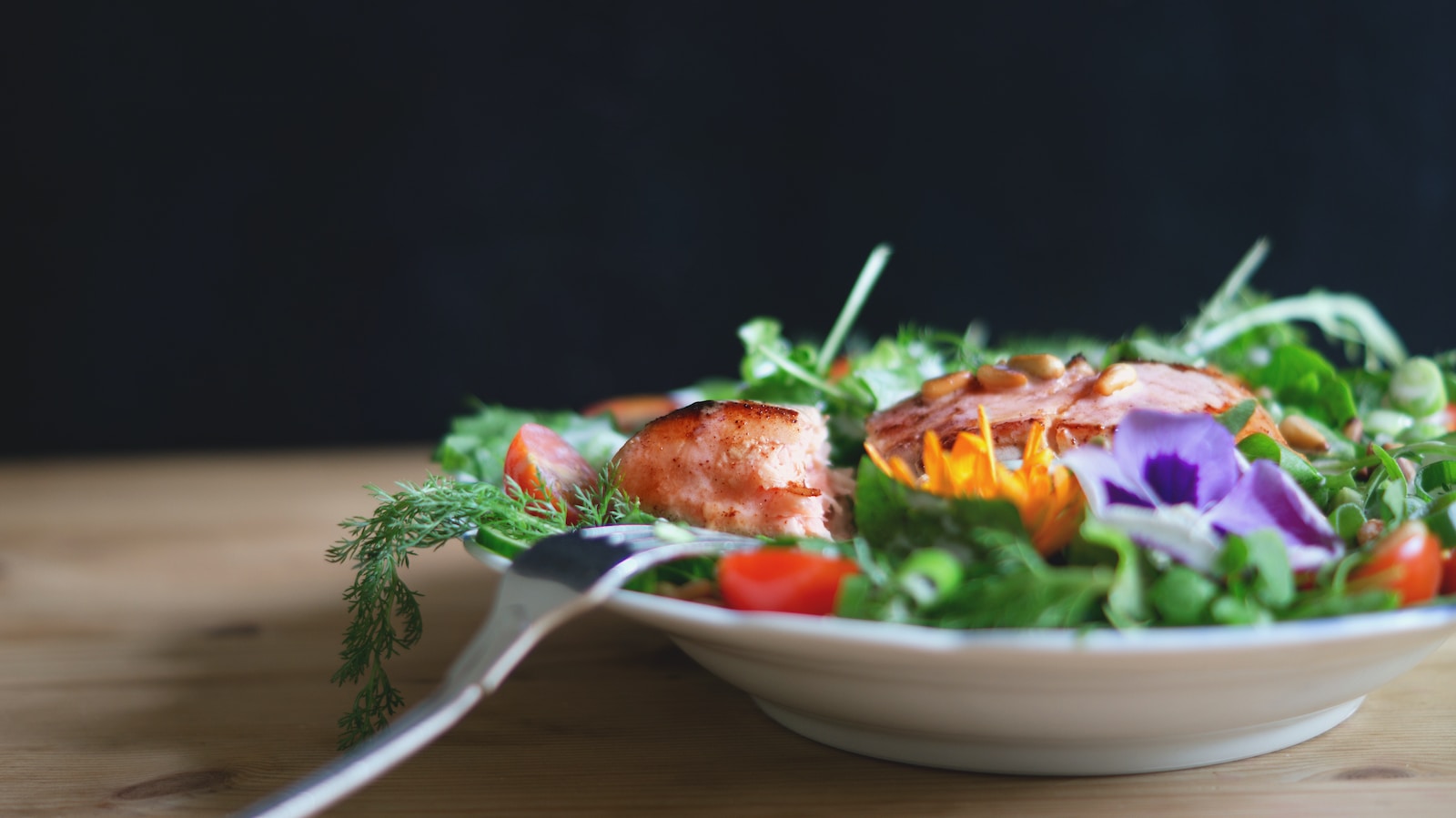Giving up alcohol can be a challenging but rewarding decision. It can lead to improved physical and mental health, better relationships, and a clearer mind. However, it can also come with some unexpected social challenges, such as navigating social situations without alcohol and dealing with the reactions of others. One common question that may arise is whether you can ask your chef to stop using wine in your meals.
Asking your chef to stop using wine is a reasonable request, especially if you have a history of alcohol addiction or are currently in recovery. However, it is important to approach the situation with sensitivity and respect. Your chef may be accustomed to using wine in their cooking and may not understand why you are making this request. It is important to explain your reasons clearly and calmly, and to emphasize that this is a personal choice that you have made for your health and well-being.
Key Takeaways:
- Giving up alcohol can lead to improved physical and mental health, but can also come with social challenges.
- Asking your chef to stop using wine in your meals is a reasonable request, but it is important to approach the situation with sensitivity and respect.
- Explaining your reasons clearly and calmly can help your chef understand why you are making this request.

Understanding Alcohol and Its Effects
If you have given up alcohol, you may be wondering how it affects your body and mind. In this section, we will explore the effects of alcohol on your body and health, as well as the symptoms of alcohol withdrawal and its impact on mental health.
Effects on Body and Health
Alcohol affects many parts of the body, including the heart, brain, and liver. Drinking too much alcohol over time can cause serious health problems, such as high blood pressure, cancer, and liver disease. In addition, alcohol can weaken your immune system, making it harder for your body to fight off infections.
Alcohol Withdrawal Symptoms
If you have been drinking heavily for a long time and suddenly stop, you may experience alcohol withdrawal symptoms. These can include nausea, headaches, insomnia, and even hallucinations. In severe cases, alcohol withdrawal can lead to a condition called delirium tremens, which can cause confusion, tremors, and seizures.
Alcohol and Mental Health
Alcohol can also have a significant impact on mental health. While some people may feel relaxed and happy after drinking, others may experience emotional distress, anxiety, and even depression. If you are struggling with addiction or mental health issues related to alcohol, it is important to seek help from a therapist or psychiatrist. Talk therapy and addiction treatment can be effective in helping you overcome these challenges and improve your overall well-being.
When you have given up alcohol, it is important to take care of your body and mind. By understanding the effects of alcohol on your health and seeking support when you need it, you can maintain a healthy and fulfilling lifestyle.
The Process of Quitting Alcohol
If you have decided to quit drinking alcohol, congratulations! It’s a big decision, and it takes courage and determination to make such a change. Quitting alcohol can be a challenging process, but it’s also incredibly rewarding. In this section, we’ll go over some of the initial steps you can take to quit drinking, how to deal with triggers and temptations, how to embrace new habits and routines, and how to seek professional support.
Initial Steps to Quit Drinking
The first step in quitting alcohol is to make a commitment to yourself. Decide that you want to stop drinking, and set a date to start your journey. It’s important to be realistic about your goals and to take things one day at a time. You may want to consider telling your friends and family about your decision, as they can provide support and accountability.
Another important step is to create a plan for how you will quit drinking. This may involve cutting back gradually or stopping cold turkey. You may also want to consider seeking professional help, such as talking to a doctor or addiction treatment specialist. They can provide guidance and support throughout the process.
Dealing with Triggers and Temptations
One of the biggest challenges of quitting alcohol is dealing with triggers and temptations. Triggers are situations or emotions that make you want to drink, while temptations are opportunities to drink. Common triggers include stress, anxiety, boredom, and social situations. To deal with triggers, it can be helpful to identify them ahead of time and come up with a plan for how to handle them. For example, if social situations are a trigger for you, you may want to avoid parties or events where alcohol is present.
Temptations can be more difficult to deal with, as they often arise unexpectedly. In these situations, distraction can be a useful tool. Try finding a healthy activity, such as exercise or reading, to take your mind off of drinking. You may also want to practice mindfulness or meditation to help you stay present in the moment and resist temptation.
Embracing New Habits and Routines
Quitting alcohol is not just about stopping drinking; it’s also about creating new habits and routines. This can involve finding new hobbies or activities to replace drinking, such as cycling or hiking. It can also involve developing a self-care routine, such as meditation or yoga, to help you manage stress and anxiety.
Creating a routine can be helpful in establishing new habits. Try setting a regular sleep schedule, eating healthy meals at regular times, and scheduling time for exercise and self-care. These habits can help you stay on track and avoid triggers and temptations.
Seeking Professional Support
Finally, it’s important to seek professional support if you need it. This may involve talking to a doctor or addiction treatment specialist, who can provide guidance and support throughout the process. They may also recommend medications or other treatments to help you quit drinking.
Remember, quitting alcohol is a journey, and it’s okay to ask for help along the way. With the right support and mindset, you can successfully quit drinking and live a healthy, alcohol-free life.

Role of Diet in Alcohol Recovery
Making the decision to give up alcohol is a significant step towards recovery. However, it is essential to understand that alcohol recovery is not just about abstaining from alcohol. It is also about adopting a healthy lifestyle that includes a balanced diet. A healthy diet can help you manage your appetite, maintain a healthy weight, and improve your overall well-being. In this section, we will discuss the role of diet in alcohol recovery.
Healthy Foods and Drinks
A healthy diet is crucial for alcohol recovery. It is important to include foods that are rich in nutrients such as vitamins, minerals, and antioxidants. These nutrients can help repair the damage caused by alcohol abuse and improve your overall health. Here are some healthy foods and drinks that you can include in your diet:
- Water: Drinking plenty of water is essential for alcohol recovery. It can help you stay hydrated and flush out toxins from your body.
- Tea: Drinking tea, especially herbal tea, can help you relax and reduce stress. It can also boost your immune system and improve your sleep quality.
- Coffee: Drinking coffee in moderation can help you stay alert and focused. However, it is important not to overdo it, as too much caffeine can cause anxiety and disrupt your sleep.
- Energy Foods: Eating foods that are high in energy can help you combat fatigue and improve your mood. Some examples of energy foods include nuts, seeds, whole grains, and fruits.
Managing Appetite and Weight
Alcohol abuse can lead to weight gain and an increased appetite. Therefore, it is important to manage your appetite and maintain a healthy weight during alcohol recovery. Here are some tips to help you manage your appetite and weight:
- Eat small, frequent meals: Instead of eating three large meals a day, try eating smaller meals throughout the day. This can help you manage your appetite and prevent overeating.
- Eat protein-rich foods: Eating foods that are high in protein can help you feel full and reduce your appetite. Some examples of protein-rich foods include lean meats, fish, eggs, and beans.
- Avoid sugary and processed foods: Sugary and processed foods can cause a spike in blood sugar levels, which can lead to cravings and overeating. Instead, opt for whole, nutrient-dense foods.
- Exercise regularly: Regular exercise can help you maintain a healthy weight and reduce your appetite. Aim for at least 30 minutes of moderate-intensity exercise per day.
In conclusion, a healthy diet is essential for alcohol recovery. It can help you manage your appetite, maintain a healthy weight, and improve your overall well-being. Incorporate healthy foods and drinks into your diet, and follow the tips above to manage your appetite and weight.
Navigating Social Situations Without Alcohol
If you’ve given up alcohol, navigating social situations can be a bit tricky. You may feel like you’re missing out on the fun, but it’s important to remember that you can still have a good time without drinking. Here are some tips for navigating social events without alcohol.
Dealing with Social Events
Social events can be challenging when you’re not drinking. You may feel like you don’t fit in or that you’re missing out on the fun. However, there are plenty of ways to enjoy social events without alcohol. Here are a few tips:
- Bring a non-alcoholic drink with you. This can help you feel like you’re part of the group and give you something to sip on.
- Focus on the food. Social events often involve food, so take advantage of this and enjoy some delicious snacks or a meal.
- Find an activity. If the event involves an activity, like dancing or playing games, join in and have fun.
- Be honest with your friends. Let them know that you’re not drinking and why. They may be more understanding than you think.
Building a Support System
Having a support system is important when you’re giving up alcohol. Here are some ways to build a support system:
- Join a support group. There are many support groups available, both online and in-person. These groups can provide emotional support and help you stay on track.
- Surround yourself with supportive people. Spend time with friends and family who support your decision to quit drinking.
- Find new ways to socialize. Look for activities that don’t involve alcohol, like hiking, going to the movies, or taking a class.
- Take care of yourself. Self-care is important when you’re giving up alcohol. Make sure you’re getting enough sleep, eating well, and exercising regularly.
Navigating social situations without alcohol can be challenging, but it’s important to remember that you can still have fun and enjoy yourself. Focus on the people and activities around you, build a support system, and take care of yourself. With these tips, you can navigate social situations without alcohol and still have a great time.

Special Considerations
If you have given up alcohol and are trying to maintain sobriety, it’s important to communicate your needs to those around you. This includes your chef if you are concerned about them using wine in your meals. While it’s understandable to want to avoid alcohol altogether, there are some special considerations to keep in mind.
Alcohol and Pregnancy
If you are pregnant, it’s important to avoid alcohol altogether. Even small amounts of alcohol can be harmful to a developing fetus. If you are pregnant and concerned about your chef using wine in your meals, it’s important to communicate your needs to them. You can suggest alternative ingredients or cooking methods that don’t involve alcohol.
Alcohol and Covid
During the Covid pandemic, many people have turned to alcohol as a way to cope with stress and anxiety. However, excessive alcohol consumption can weaken your immune system and make it harder for your body to fight off infections. If you are concerned about your chef using wine in your meals, it’s important to communicate your needs to them. You can explain that you are trying to maintain a healthy lifestyle and avoid alcohol altogether.
Alcohol and Relationships
If you are in a relationship with someone who drinks alcohol, it can be challenging to maintain your sobriety. It’s important to communicate your needs to your partner and let them know that you are trying to avoid alcohol altogether. You can suggest alternative activities that don’t involve alcohol, such as going for a walk or trying a new hobby together.
In summary, if you have given up alcohol, it’s important to communicate your needs to those around you. This includes your chef if you are concerned about them using wine in your meals. While there are some special considerations to keep in mind, it’s possible to maintain your sobriety and live a healthy, fulfilling life.
The Sober Curious Movement
If you’ve given up alcohol and are wondering if it’s appropriate to ask your chef to stop using wine, you’re not alone. The Sober Curious Movement is a growing trend that empowers people to question the role of alcohol in their lives.
Taking on a Sobriety Challenge
One way to explore the Sober Curious Movement is by taking on a sobriety challenge, such as Dry January. This is a month-long challenge where participants give up alcohol for the entire month of January. The challenge is a great way to see how you feel without alcohol and to explore your relationship with it.
If you’re considering a sobriety challenge, it’s important to have a plan in place. Start by setting a goal for yourself, such as going alcohol-free for 30 days. Then, find support from friends or family members who can help you stay on track. You can also look for online communities or support groups that focus on sobriety challenges.
Finding Inspiration and Support
The Sober Curious Movement is all about compassion and finding support. If you’re struggling to stay sober, don’t be afraid to reach out for help. The Cleveland Clinic has a variety of resources available for those who are looking to quit drinking, including support groups and counseling services.
You can also find inspiration from others who have gone through similar experiences. Look for books, podcasts, or blogs that focus on the Sober Curious Movement. These resources can help you stay motivated and remind you of why you decided to give up alcohol in the first place.
In conclusion, the Sober Curious Movement is a growing trend that is empowering people to question the role of alcohol in their lives. Whether you’re taking on a sobriety challenge or looking for support, there are resources available to help you on your journey. Remember to be compassionate with yourself and to seek out support when you need it.
Frequently Asked Questions
Is it okay to ask a chef to not use wine in my food if I’ve given up alcohol?
Yes, it is perfectly fine to ask a chef to not use wine in your food if you have given up alcohol. It is important to communicate your preferences and needs to the chef or restaurant staff beforehand so they can make the necessary accommodations.
Can alcoholics have food cooked with alcohol?
It depends on the individual and their stage of recovery. Some alcoholics may choose to avoid food cooked with alcohol altogether, while others may feel comfortable consuming small amounts of alcohol in food. It is important to consult with a healthcare professional or addiction specialist to determine what is best for you.
When cooking with wine, is the alcohol cooked out?
While some of the alcohol may evaporate during the cooking process, not all of it is completely cooked out. The amount of alcohol that remains in the dish depends on factors such as cooking time, temperature, and amount of wine used.
Can you still enjoy the taste of wine if you’ve given up alcohol?
Yes, there are non-alcoholic substitutes available that can mimic the taste of wine. Some options include grape juice, apple cider vinegar, or non-alcoholic wine.
What are some non-alcoholic substitutes for cooking with wine?
There are several non-alcoholic substitutes that can be used in place of wine when cooking. Some options include chicken or vegetable broth, grape juice, apple cider vinegar, or non-alcoholic wine.
Are there any health benefits to cooking with wine?
While wine does contain antioxidants that can provide health benefits, the amount used in cooking is typically not enough to make a significant impact. It is important to consume alcohol in moderation and to consult with a healthcare professional before making any dietary changes.
About the author
Dr Harlan Kilstein has been fascinated by cooking and food technology since he was young.
He has worked in the catering industry for many years.
He has authored more than a dozen recipe books in the Keto niche including Speed Keto, Speed Keto RFL (Rapid Fat Loss) and many more.




